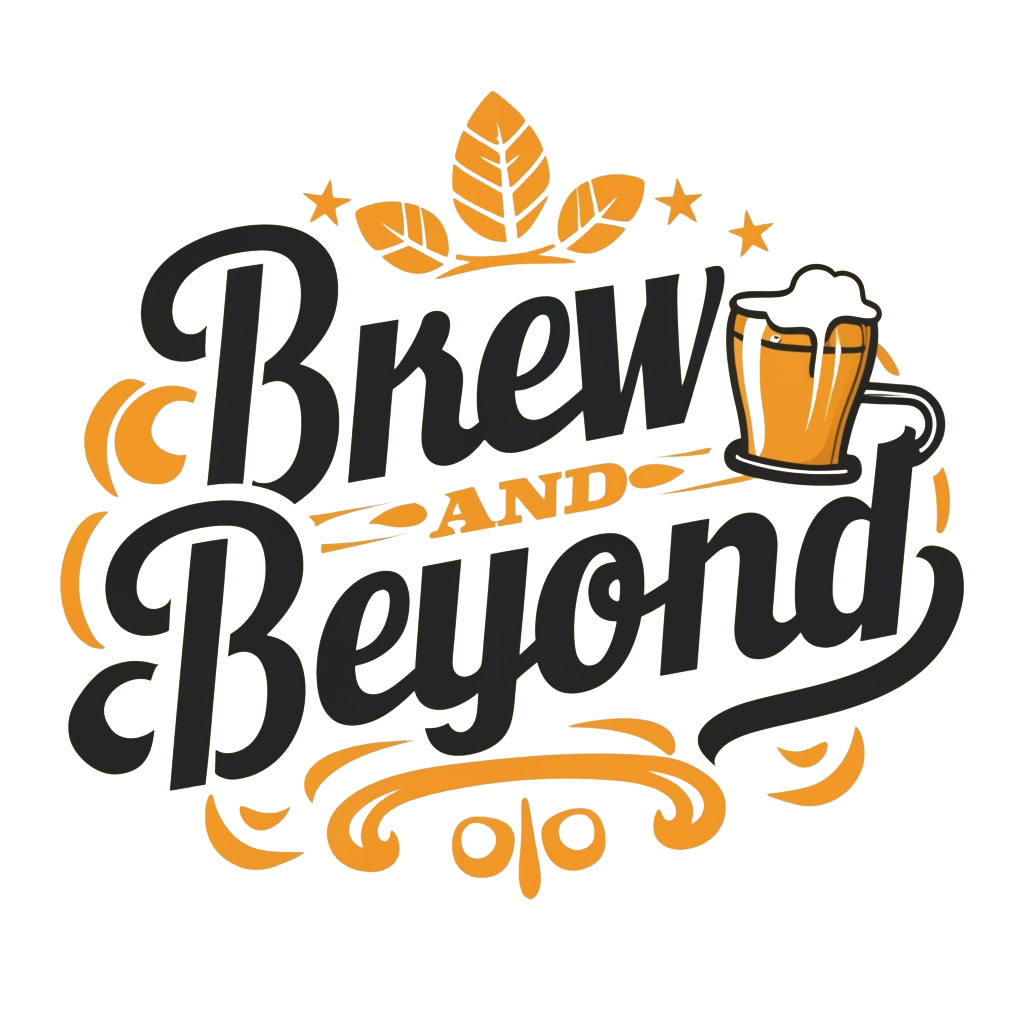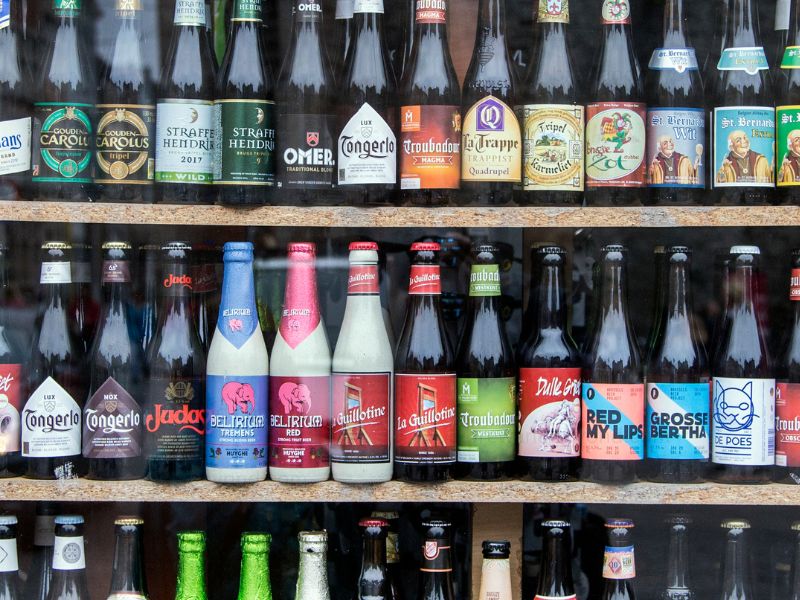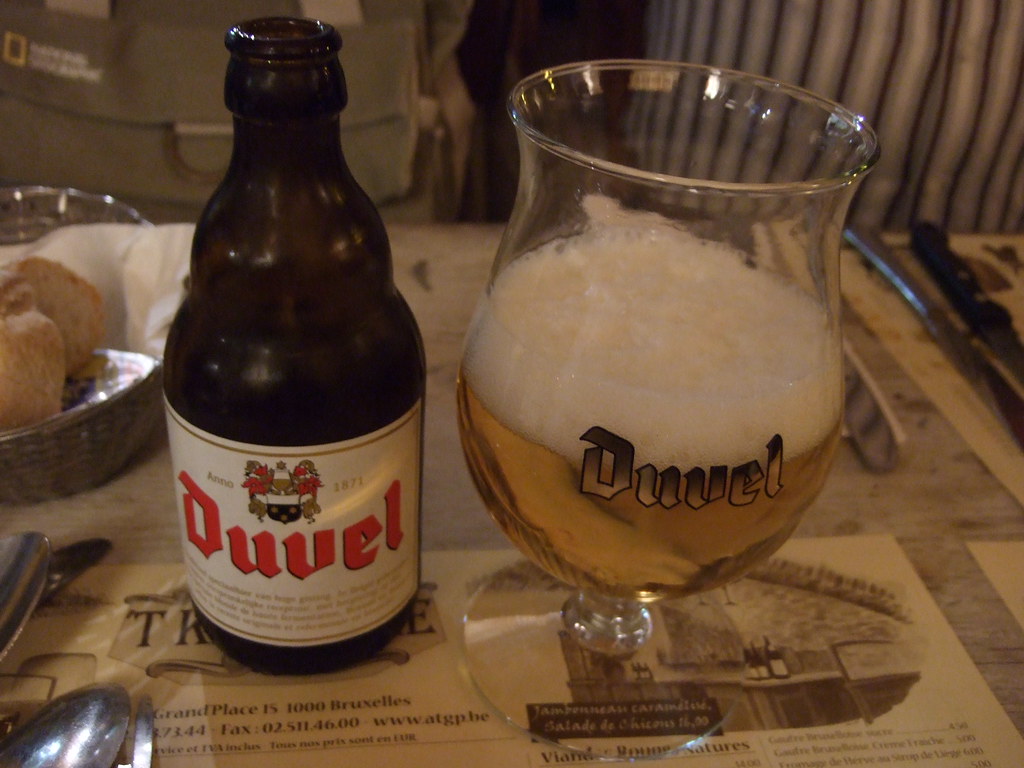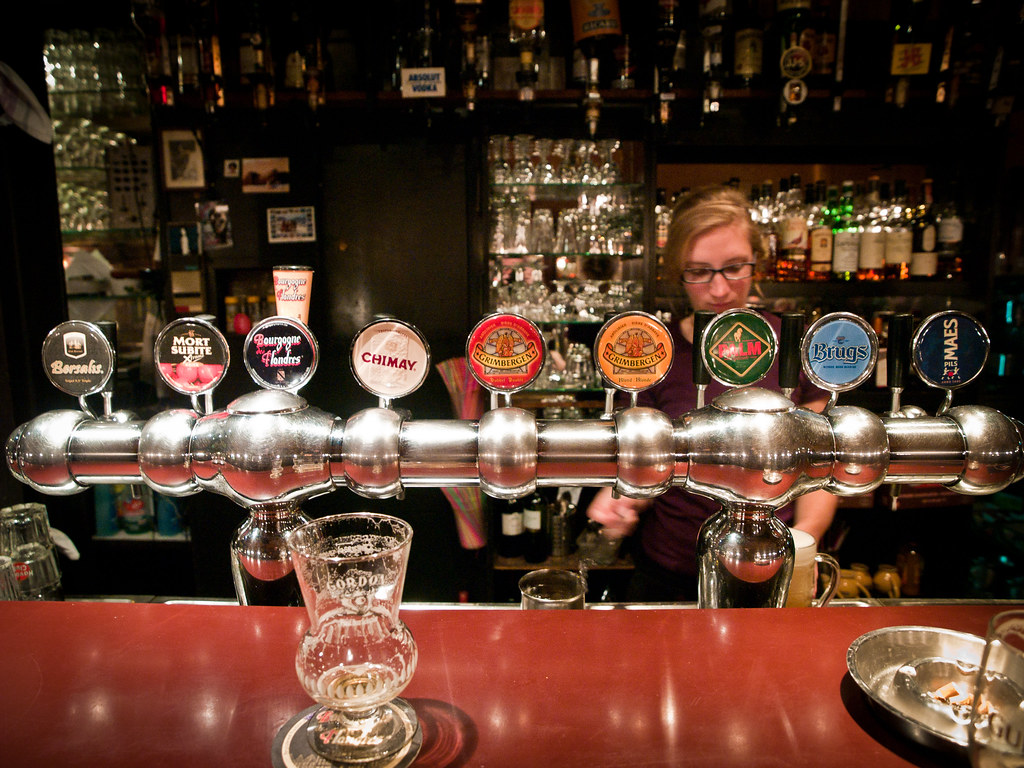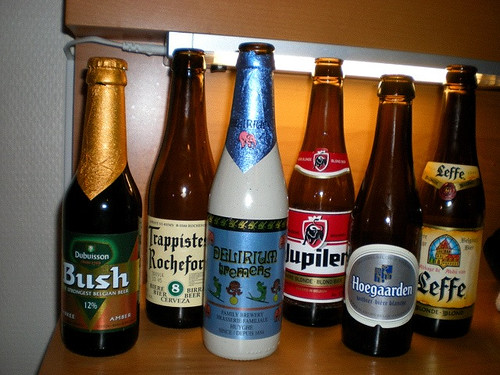If you’re a beer enthusiast with a penchant for quality and tradition, then Belgian beers should be at the top of your list. Renowned for their richness, complexity, and unique flavors, Belgian beers are truly a delight for the senses. From Trappist brews crafted within the walls of monasteries to a wide array of styles and tastes that go beyond traditional beer norms, Belgian beers offer a world of exploration and enjoyment. So grab a glass and join us on a journey into the captivating world of Belgian beers, where each sip tells a story of centuries-old brewing techniques and unmatched craftsmanship.
History of Belgian Beers
Belgium has a rich and storied history when it comes to brewing beer. From the early beginnings of beer production to the rise of Trappist and non-Trappist breweries, Belgian beers have become famous worldwide for their unique flavors and craftsmanship.
Early Beginnings
Beer production in Belgium dates back centuries, with evidence of brewing dating as far back as the Roman Empire. In the Middle Ages, brewing beer became more prevalent, with monasteries playing a significant role in its production. Monks brewed beer not only for their own consumption but also to offer sustenance to travelers and pilgrims.
Abbey Breweries
During the medieval period, Abbey breweries emerged in Belgium, with monastic traditions serving as the foundation for their brewing practices. These breweries were closely associated with specific abbeys, and the beers they produced carried the abbey’s name. While many of these breweries no longer exist today, their influence on Belgian brewing culture cannot be understated.
Trappist Breweries
Trappist beers are considered the pinnacle of Belgian brewing. The term “Trappist” refers to beers brewed within the walls of Trappist monasteries by the monks themselves or under their direct supervision. These beers are known for their exceptional quality and authenticity.
Trappist Beers
Trappist beers are truly unique, boasting flavors and aromas that are unparalleled in the beer world. What sets them apart is the strict adherence to the traditional brewing methods practiced by the Trappist monks. From the choice and quality of ingredients to the meticulous brewing process, Trappist beers are a labor of love and dedication.
The Trappist Breweries in Belgium
Belgium is home to six Trappist breweries, each producing its own distinct beers. These breweries include Westmalle, Westvleteren, Chimay, Orval, Rochefort, and Achel. From the renowned Trappist Rochefort 10 to the world-famous Westvleteren 12, each beer has its own character and flavor profile that showcases the unique brewing expertise of each monastery.
Popular Trappist Beers
Some of the most popular and sought-after Trappist beers include the aforementioned Westvleteren 12, which is often considered one of the best beers in the world. Other notable mentions include the rich and complex Rochefort 10, the fruity and spicy Chimay Blue, and the bready and caramel-forward Westmalle Dubbel.
Non-Trappist Belgian Beers
While Trappist beers may steal the spotlight, Belgian brewing has much more to offer beyond these monastic treasures. Non-Trappist Belgian beers come in a wide range of styles and flavors, each with its own unique characteristics.
Styles and Flavors
Belgian beers encompass a vast array of styles, ranging from light and refreshing Belgian Witbiers to rich and robust Belgian Quadrupels. Each style brings something different to the table, with flavors ranging from fruity and spicy to malty and caramel-forward. Belgian brewers are known for pushing the boundaries of flavor, creating complex and intriguing brews.
Renowned Belgian Breweries
Belgium is home to numerous renowned breweries that have achieved international acclaim. Breweries like Duvel Moortgat, Brouwerij Huyghe, and Brasserie d’Achouffe have made a name for themselves with their exceptional craftsmanship and innovative brewing techniques. These breweries have been instrumental in putting Belgian beer on the global map and continue to produce outstanding beers.
Iconic Non-Trappist Beers
Some of the most iconic non-Trappist Belgian beers include the world-famous Duvel, known for its strong, pale ale with fruity and spicy notes. Another noteworthy mention is the Trappistes Rochefort 8, a sister beer to the Trappist Rochefort 10, offering a slightly lighter and more balanced flavor profile. Additionally, the hop-forward Delirium Tremens and the dark and rich Chimay Red are beloved by beer enthusiasts worldwide.
Belgian Beer Festivals
Belgian beer festivals are a true celebration of the country’s brewing heritage. These festivals provide an opportunity for beer lovers to come together and sample some of the finest Belgian brews in a lively and festive atmosphere.
Brussels Beer Weekend
The Brussels Beer Weekend is one of the most popular beer festivals in Belgium. It takes place annually in September and showcases a wide variety of Belgian beers, both Trappist and non-Trappist. Visitors can immerse themselves in the vibrant beer culture of Belgium while enjoying live music and delicious food pairings.
Zythos Bier Festival
The Zythos Bier Festival, held in Leuven, is another must-visit event for beer enthusiasts. This festival brings together over 100 Belgian breweries, offering attendees the chance to sample an extensive selection of beers. With its relaxed and friendly atmosphere, the Zythos Bier Festival is a perfect opportunity to discover new and exciting brews.
Belgian Beer Weekend in Antwerp
Antwerp hosts its own Belgian Beer Weekend, which attracts locals and tourists alike. This three-day event offers an impressive lineup of Belgian beers, ranging from traditional styles to innovative concoctions. The Belgian Beer Weekend in Antwerp also features live entertainment, food stalls, and brewery tours, making it an unforgettable experience for beer lovers.
Trappist Brews in Other Countries
While Belgian Trappist beers are synonymous with quality and craftsmanship, they are not limited to Belgium alone. The Trappist tradition has spread to other countries, with a select few monasteries outside of Belgium producing their own Trappist beers.
Trappist Breweries Outside of Belgium
Outside of Belgium, there are currently only twelve official Trappist breweries in the world. These breweries can be found in countries such as the Netherlands, Austria, Italy, and the United States. Each brewery follows the same stringent guidelines set by the International Trappist Association, ensuring the authenticity and quality of their beers.
Popular Non-Belgian Trappist Beers
Among the non-Belgian Trappist beers, the Dutch brewery De Koningshoeven, known for its La Trappe Trappist beers, stands out. La Trappe beers offer a diverse range of styles, from the classic Trappist Dubbel to the unique and rare Oak-Aged Quadrupel. These beers embody the passion and dedication of the Trappist tradition, even outside of Belgium.
Historical Significance of Belgian Beers
Belgian beers have had a profound influence on beer culture worldwide. They have pushed the boundaries of brewing, inspiring brewers around the globe and setting the standard for quality and craftsmanship.
Influence on Beer Culture
Belgian beers have played a significant role in shaping the beer culture we know today. From the experimentation with different ingredients and fermentation techniques to the revival of forgotten beer styles, Belgian brewers have continuously pushed the envelope of what beer can be.
Beer and Belgian Identity
Beer is deeply ingrained in Belgian culture and is closely tied to the country’s identity. It has become a symbol of national pride, with Belgians taking great pride in their rich brewing heritage. Belgian beers have become ambassadors for the country, showcasing its passion for craftsmanship, hospitality, and conviviality.
Belgian Beer Tourism
For beer enthusiasts, Belgium offers a multitude of opportunities to delve into the world of Belgian brewing. From brewery tours to beer museums and tasting experiences, there are endless ways to immerse yourself in the rich beer culture of Belgium.
Brewery Tours
Brewery tours are a fantastic way to gain insight into the brewing process and learn about the history and traditions behind Belgian beers. Many breweries in Belgium offer guided tours, allowing visitors to witness firsthand the craftsmanship and dedication that goes into creating their favorite beers.
Beer Museums
Belgium is home to several beer museums, including the famous Brussels Beer Museum and the Bruges Beer Experience. These museums provide a comprehensive look into the history of Belgian brewing, showcasing vintage brewing equipment, artifacts, and interactive exhibits. Visitors can learn about the different beer styles and the cultural significance of beer in Belgian society.
Beer Tasting Experiences
No visit to Belgium would be complete without indulging in a beer-tasting experience. Numerous bars, cafes, and beer-focused establishments offer curated beer tastings, allowing visitors to explore the diverse range of Belgian beers. Whether it’s a guided tasting of Trappist beers or a flight of unique local brews, these experiences provide a deeper appreciation for the artistry and complexity of Belgian beer.
Belgian Beers and Food Pairings
Belgian beers are not only delightful on their own but also pair exceptionally well with food. The complex flavors and unique characteristics of Belgian beers make them a versatile companion to a wide range of dishes.
Traditional Belgian Cuisine
Pairing Belgian beers with traditional Belgian cuisine is a match made in culinary heaven. From the rich and hearty Beef Stew Carbonade Flamande paired with a malty Belgian Dubbel to the refreshing and zesty Belgian Witbier complementing a plate of moules-frites, the possibilities for beer and food pairings are endless.
Beer and Cheese Pairings
Belgium is world-renowned for its exceptional cheese, and pairing it with Belgian beers takes the flavors to new heights. The creamy and pungent flavors of Belgian Trappist cheeses, such as Chimay and Westmalle, harmonize perfectly with the complex and robust flavors of Trappist ales. Additionally, soft and tangy goat cheeses can be beautifully complemented by fruity and acidic Belgian Sour Ales.
Beer and Chocolate Pairings
Belgian chocolate is celebrated worldwide for its quality and craftsmanship. When paired with Belgian beers, the experience becomes truly indulgent. The velvety texture and rich cocoa flavors of dark chocolate find a perfect companion in the malty and complex Belgian Quadrupels, while the smooth creaminess of milk chocolate is complemented by the caramel notes of Belgian Dubbels.
Challenges Facing Belgian Beers
While Belgian beers continue to be revered and enjoyed by beer enthusiasts globally, they face certain challenges in an ever-evolving beer landscape.
Competition from Craft Beers
The rise of craft breweries worldwide has introduced a new level of competition for Belgian beers. Craft brewers are pushing boundaries, experimenting with ingredients, and creating unique and innovative brews that captivate consumers. Belgian breweries must continuously innovate and adapt to stand out in this crowded market.
Changing Consumer Preferences
Consumer preferences are also changing, with a growing interest in lighter, low-alcohol, and more hop-forward beers. While Belgian beers are known for their higher alcohol content and complex flavors, they may need to adapt to appeal to a wider audience while still staying true to their traditional brewing methods.
Preserving Authenticity
Preserving the authenticity of Belgian beers is crucial in maintaining their reputation and quality. As the demand for Belgian beers grows, it is essential for breweries to uphold the traditional brewing techniques and ingredients that have made these beers so distinct and beloved. Striking a balance between tradition and innovation will be key to ensuring the longevity of Belgian beers.
Conclusion
Belgian beers have a long and illustrious history, from their early beginnings in monastery breweries to the rise of Trappist and non-Trappist breweries. These beers are internationally recognized for their exceptional quality, unique flavors, and rich brewing traditions. Whether it’s the revered Trappist brews or the innovative creations of non-Trappist breweries, Belgian beers continue to captivate beer enthusiasts and shape the global beer culture. So raise your glass to the Belgian brewing heritage and take the time to savor the exquisite flavors of these unparalleled beers. Cheers!
© 2023 by brewandbeyond.com. All rights reserved. No part of this document may be reproduced or transmitted in any form or by any means, electronic, mechanical, photocopying, recording, or otherwise, without prior written permission of brewandbeyond.com.
